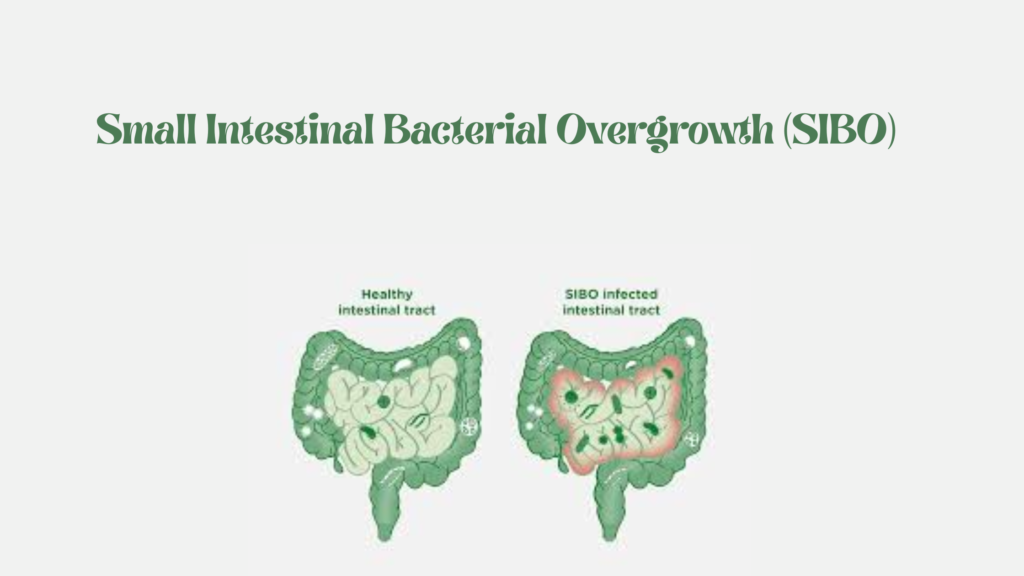Small Intestinal Bacterial Overgrowth (SIBO) is a condition where excess bacteria (normally found in the colon) grow in the small intestine, leading to symptoms due to malabsorption and intestinal irritation.
🧬 Pathophysiology
- Normally, the small intestine has relatively few bacteria.
- Factors that disrupt motility, anatomy, or defenses can lead to bacterial proliferation.
- Excess bacteria ferment carbohydrates → produce gas and toxins.
- Causes mucosal damage and nutrient malabsorption.
⚠️ Risk Factors
- Motility disorders: e.g., scleroderma, diabetic neuropathy
- Anatomical abnormalities: strictures, diverticula, blind loops, surgical alterations (e.g., bowel resection)
- Reduced gastric acid secretion: proton pump inhibitors (PPI) use, atrophic gastritis
- Immune deficiencies
- Other diseases: chronic pancreatitis, cirrhosis, Crohn’s disease
😖 Symptoms
- Bloating and abdominal distension
- Excessive flatulence
- Diarrhea (sometimes steatorrhea)
- Abdominal pain or discomfort
- Malnutrition (weight loss, vitamin deficiencies — especially B12)
- Fatigue
🧪 Diagnosis
1. Breath Tests (non-invasive, common)
- Lactulose or glucose hydrogen breath test
- Measures hydrogen/methane gases produced by bacterial fermentation
- Positive test shows an early rise in breath hydrogen or methane
2. Small Intestine Aspirate and Culture (gold standard but invasive)
- Quantitative culture with >10^5 colony-forming units/mL confirms diagnosis
3. Additional Tests
- Vitamin B12, folate levels (malabsorption clues)
- Imaging if anatomical causes suspected
💊 Treatment
1. Antibiotics
- Rifaximin (commonly used; poorly absorbed, targets gut)
- Other options: metronidazole, ciprofloxacin, amoxicillin-clavulanate (depending on flora and resistance)
- Duration: typically 10–14 days; may need repeated courses
2. Address Underlying Causes
- Treat motility disorders
- Correct anatomical abnormalities if possible
- Review and possibly stop PPI therapy if safe
3. Nutritional Support
- Supplement vitamins (B12, fat-soluble vitamins)
- Manage malabsorption symptoms
📉 Complications
- Nutrient deficiencies (B12, fat-soluble vitamins, iron)
- Weight loss and malnutrition
- Persistent GI symptoms and poor quality of life
🔄 Differential Diagnosis
| Condition | Key Features |
|---|---|
| Lactose intolerance | Symptoms after dairy intake; negative breath test for SIBO |
| Irritable bowel syndrome (IBS) | Overlapping symptoms but no bacterial overgrowth |
| Celiac disease | Positive serology, villous atrophy on biopsy |
| Inflammatory bowel disease | Inflammation on endoscopy and labs |
